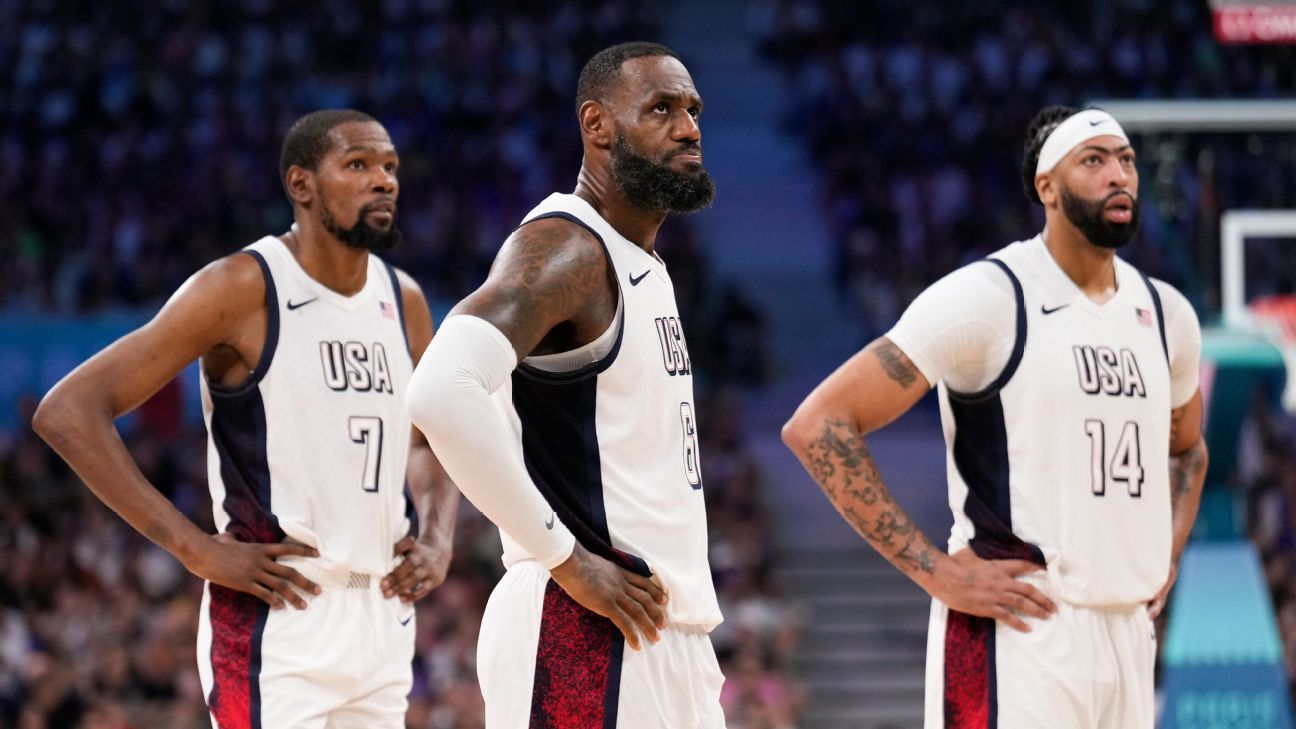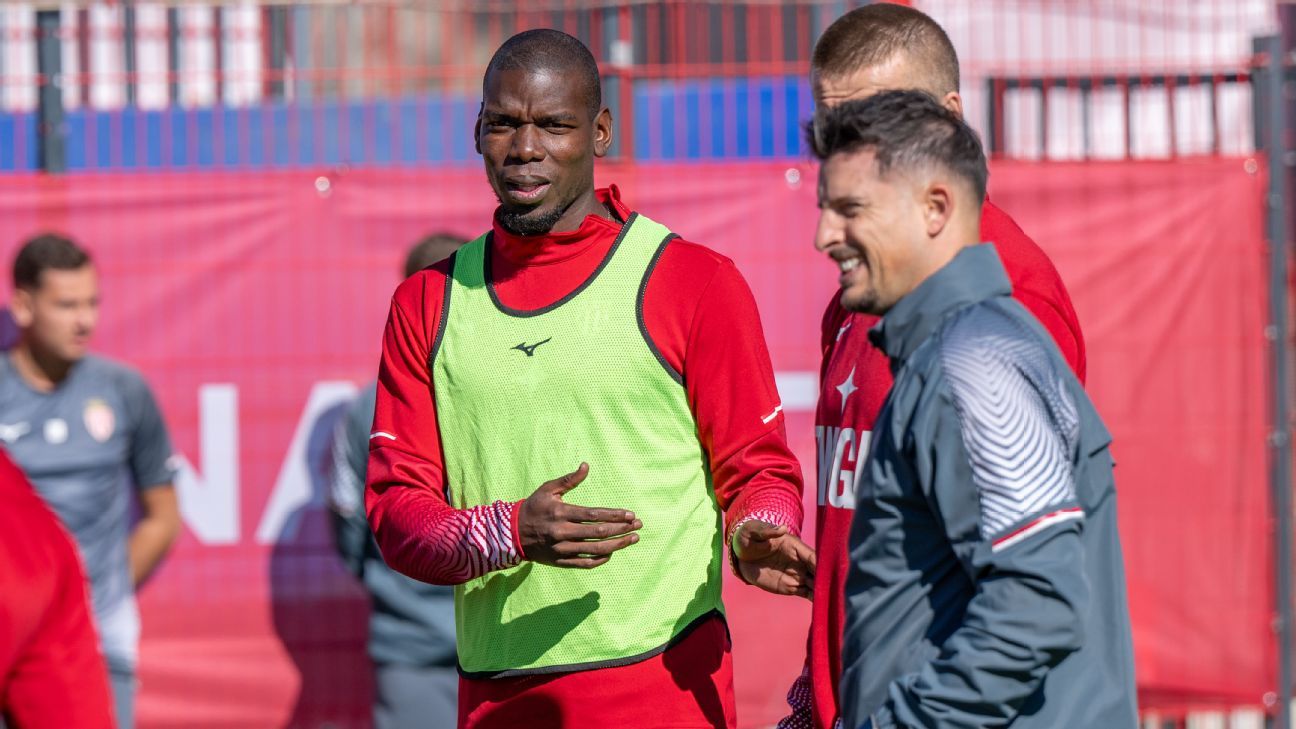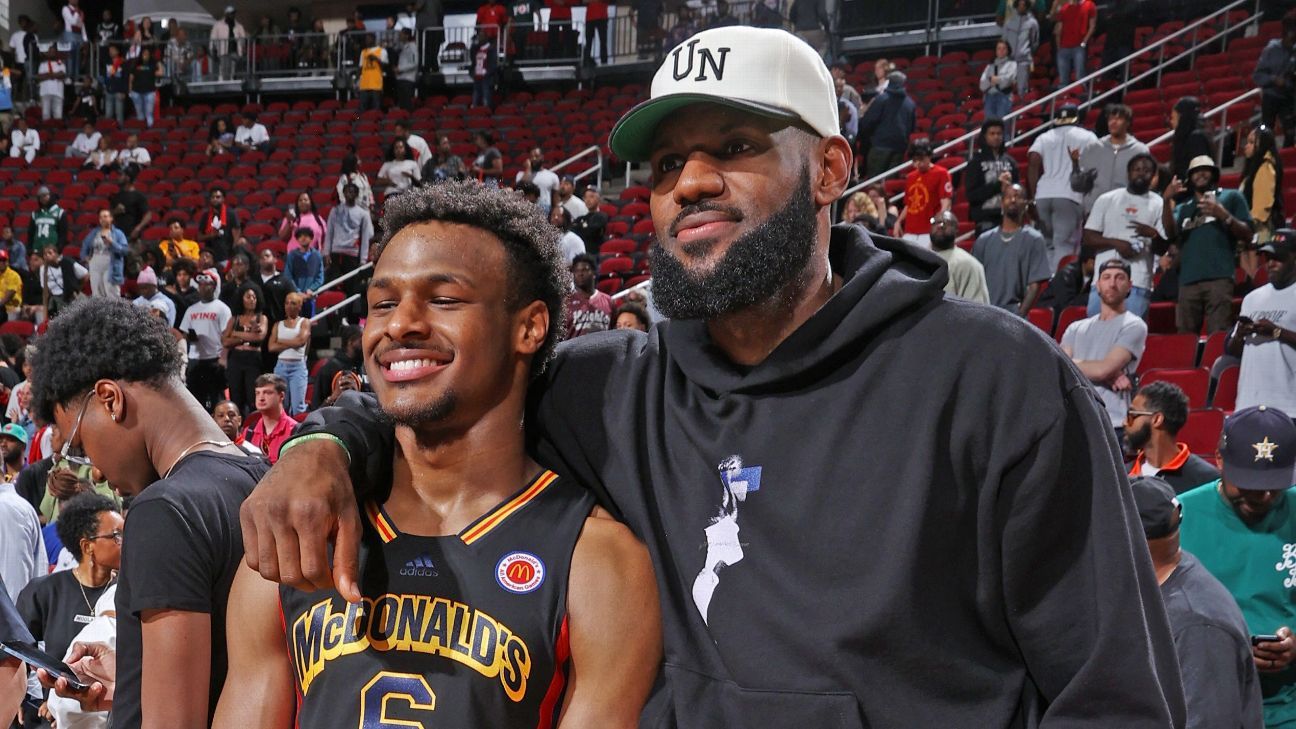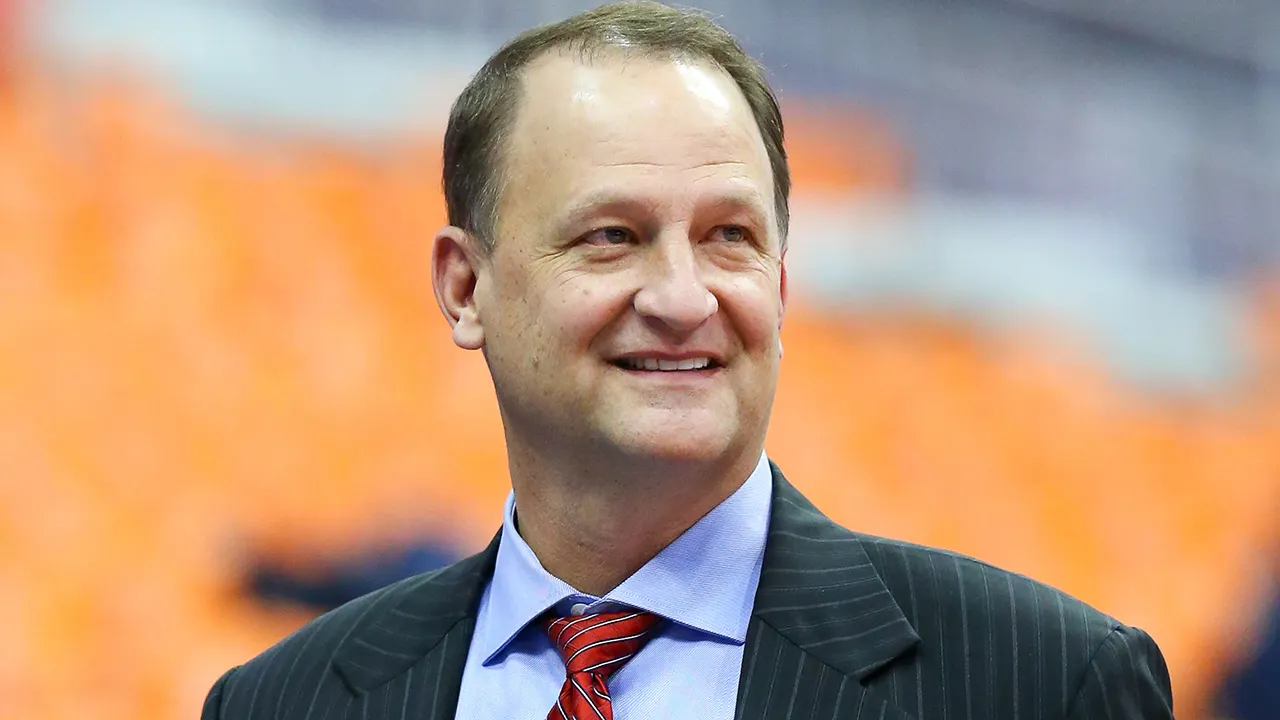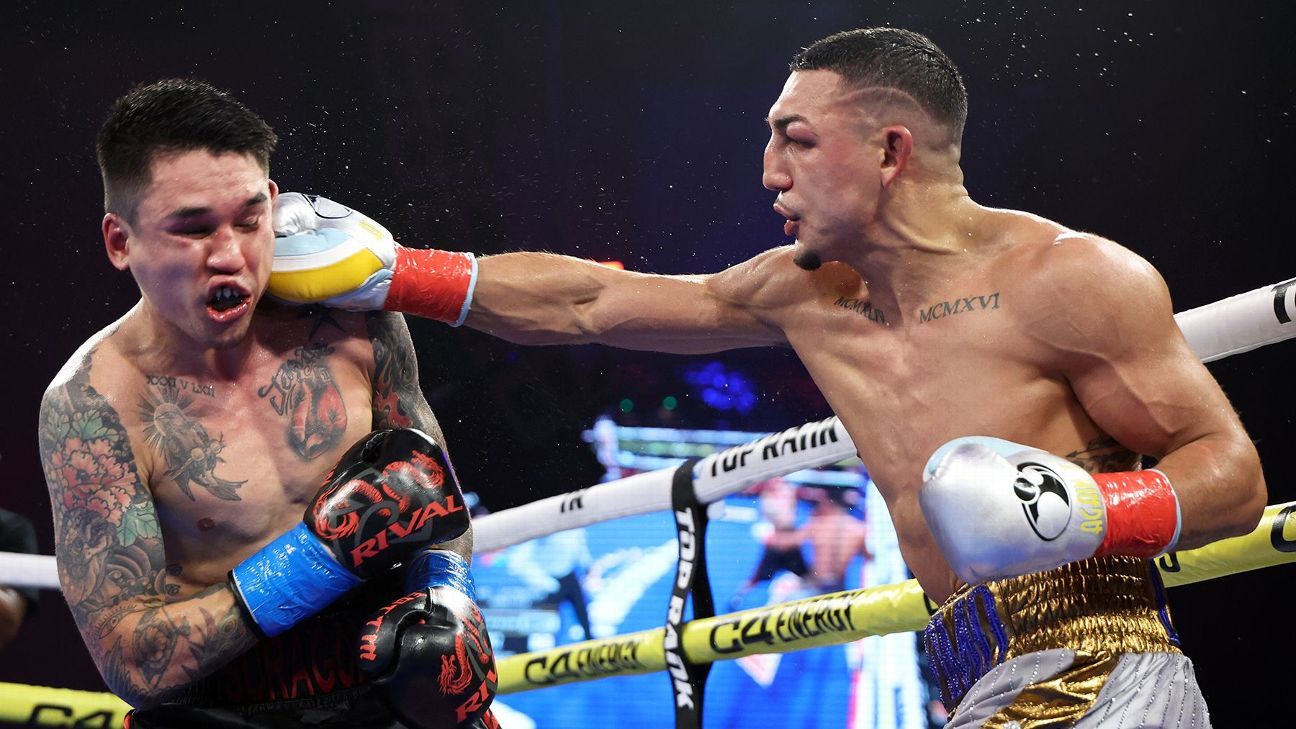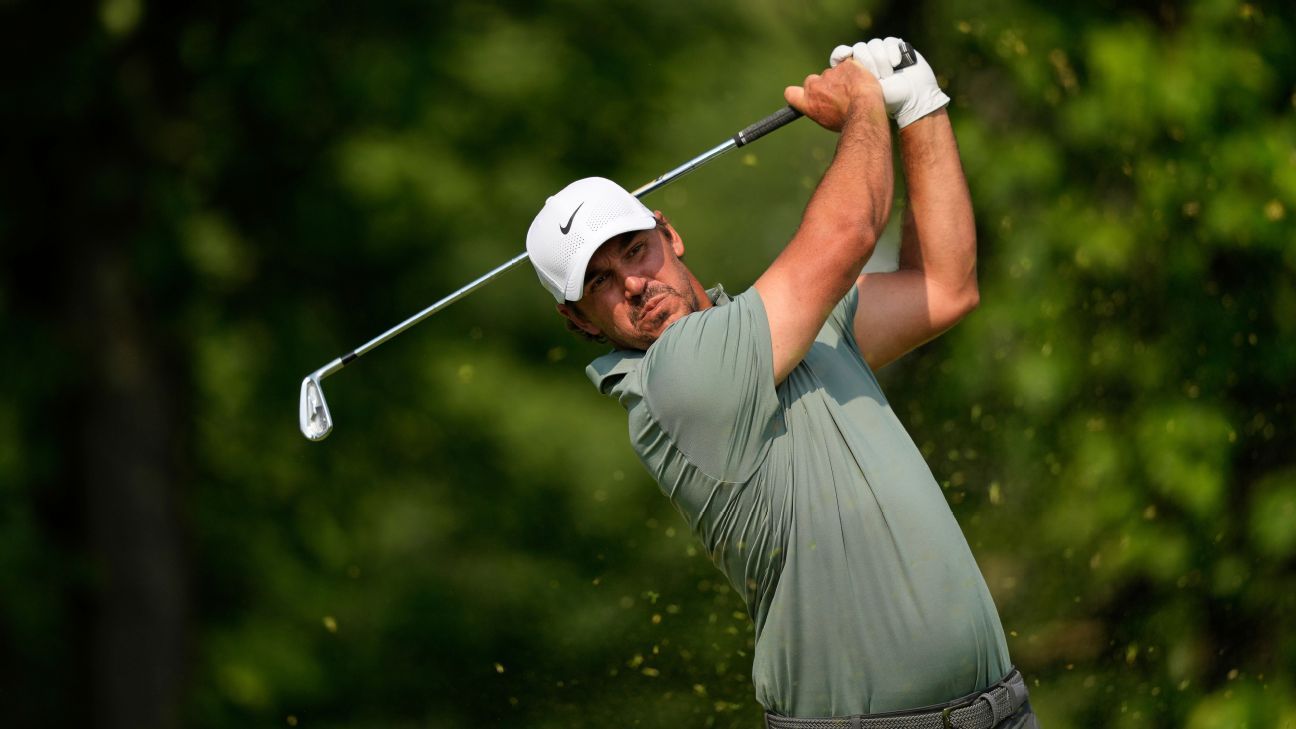PARIS — Distractions are everywhere in Paris, and the pressure of the Olympics is mounting as Team USA heads into this final, stressful stretch. The Americans are entering their decisive week with one basic mantra: Keep your life simple and don't lose your identity.
After playing three games in a 14-day span, Team USA needs to win three in a five-day span, starting Tuesday in the quarterfinals against Brazil (3:30 p.m. ET), to take home its fifth consecutive gold.
Over the past month, the Americans have honed a style that has led them to a perfect 8-0 record, including exhibition games. As they made final preparations Monday, there was a collective mindset to stick with the plan.
“We know what wins a FIBA game,” said U.S. team coach Steve Kerr, referring to the international rules used at the Olympics.
“We're completely focused on our defense… and then the beauty of our team and the talent, the depth of our talent is that from one game to the next, we have a lot of guys that have the ability to get into a rhythm.”
All the analysis and petty dramas of starting lineups and playing time aside, this is basically all Team USA does. Kerr has worked to develop lineup combinations that often prioritize defense. The U.S. doesn’t run any kind of complicated offense; it’s basically about sharing the ball and leaning on whoever is on a roll.
Three different players — Kevin Durant, Bam Adebayo and Anthony Edwards — have led the U.S. in scoring in all three games played so far in France. All of them have come off the bench.
Ten different players are averaging at least seven points per game. All ten are averaging at least six shots per game, and none are averaging more than ten. This has resulted in excellent efficiency: they are shooting 54% as a team.
“That's how we can overwhelm teams. Everyone just has to be ready for whatever moment it is,” said Stephen Curry, who has struggled to shoot the ball in the Olympics (32% overall), but that hasn't slowed the team down.
“I think it's a challenge because you don't know from one room to the next, from one game to the next, who it's going to be, [but] “It's a fun way to play. If you convince yourself that 'let's win the basketball game' and after that, who cares what it looks like.”
On defense, the U.S. appears to be holding opponents to 40 percent shooting and just 29 percent from three, and is creating a combined 16 steals and blocks per game.
Kerr has 11 players on the roster averaging between 18 and 22 minutes, and he has prioritized size, leaning toward playing three centers in his rotation most of the time.
And that's not going to change. While the Americans don't have the advantage of many of their Olympic opponents when it comes to years of experience that other countries' teams have playing together, everything the coaching staff has done over the past month has been aimed at crafting a reliable game plan, and they want to stick to it.
“It's important to focus on maintaining that identity now that you're playing against the best teams,” Kerr said.
In preparation for Brazil, which advanced to the quarterfinals on points difference after coming through the group stage with a 1-2 record, the focus has been on rebounding.
So far, the U.S. has been slightly outrebounded by its opponents (124-123), but has allowed 14 offensive rebounds per game. Brazil is averaging 13 offensive rebounds per game, and Kerr said he expects the team to try to “tear apart” the Americans on the boards.
But while that may be the goal, there are no plans to radically alter the game plan.
“Going forward, it's the big thing,” Adebayo said, referencing a famous Miami Heat saying. “We can make the game really easy for ourselves because we have a lot of talent. We all have the right mindset.”

